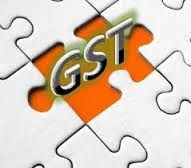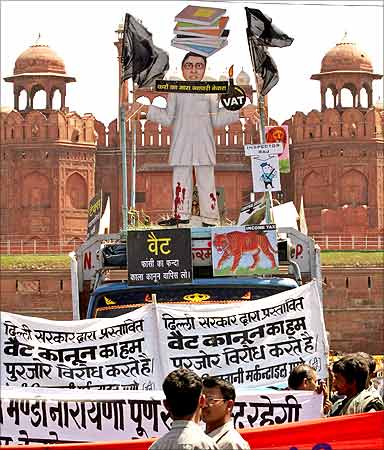As GST is a destination-based tax, it is difficult to identify the states where the tax will be imposed for some services.
 Though the tabling of a constitutional amendment Bill for a goods and services tax in the Lok Sabha is seen as kick-starting the tax reforms regime, industry isn’t cheering the move yet.
Though the tabling of a constitutional amendment Bill for a goods and services tax in the Lok Sabha is seen as kick-starting the tax reforms regime, industry isn’t cheering the move yet.
It feels the GST might not make much sense till supply rules are in place.
As GST is a destination-based tax, it is difficult to identify the states where the tax will be imposed for some services.
This is particularly true of services such as information technology and telecom, the consumption of which is spread across areas.
What is unclear is whether the tax is to be levied based on the state where a company branch is located or that where its headquarters are based.
For supply rules, the location decides where goods or services will be taxed.
These rules are relevant in the case of inter-state supply of services, which could lead to different states seeking to tax the same transaction.
“The government will have to draft supply rules in such a way that there is clarity on whether the state where the registered office is based is entitled to the GST or all offices using the particular service,” said an industry participant.
Tax experts say this crucial element of the levy has assumed more importance because of the surge in e-commerce and electronic delivery of services.
“This aspect refers to rules that allocate the right to tax services between states. So far, it seems the importing dealer will get credit for goods and services supplied from another state.
"What is unclear is which state would have the right to tax different services,” said Vivek Mishra, indirect tax partner, PWC.
“This is the backbone of GST, which will ensure the services are taxed at the right jurisdiction. Without supply rules, there is a possibility of certain services escaping tax and some being taxed twice,” said Prashant Desande, senior director, Deloitte.
On December 19, a constitutional amendment Bill on GST was introduced in the Lok Sabha. It will be taken up by Parliament in the next session.
The government plans to roll out the GST, which will subsume most indirect taxes, on April 1, 2016.
Finance Minister Arun Jaitley has said the government is open to suggestions to improve the GST Bill.
TAXING NORMS?
- GST is a destination-based tax
- That makes it difficult to clearly identify the states where the tax will be imposed for certain types of services
- Place of supply rules decides where goods or services will be taxed
- Supply rules become relevant in the case of inter-state supply of services which could lead to different states wanting to tax the same transaction
- The rules are yet to be declared by the government and would be decided by the empowered committee on GST












 © 2025
© 2025